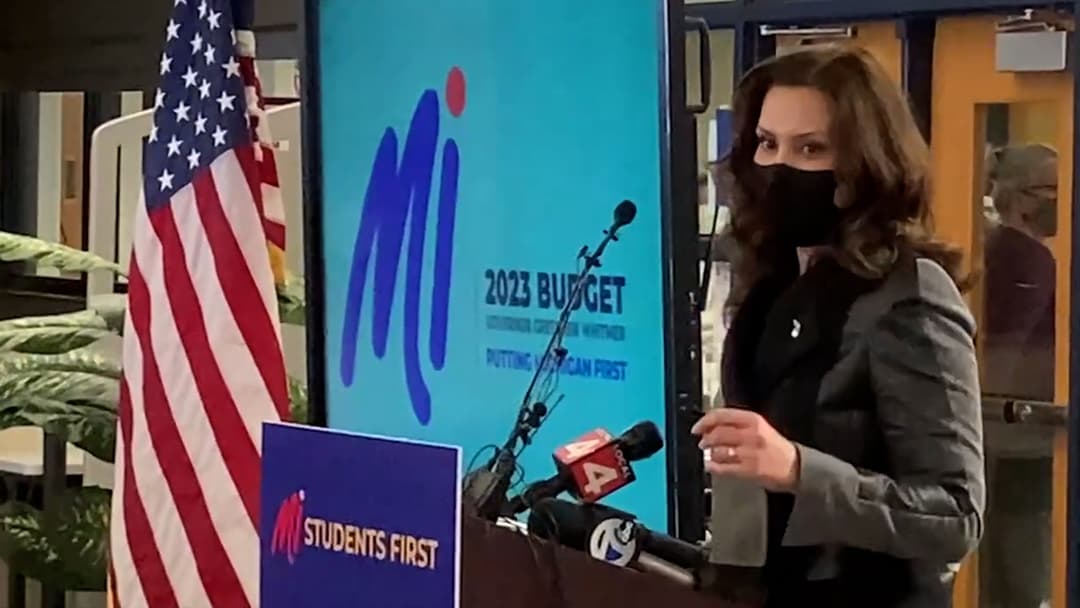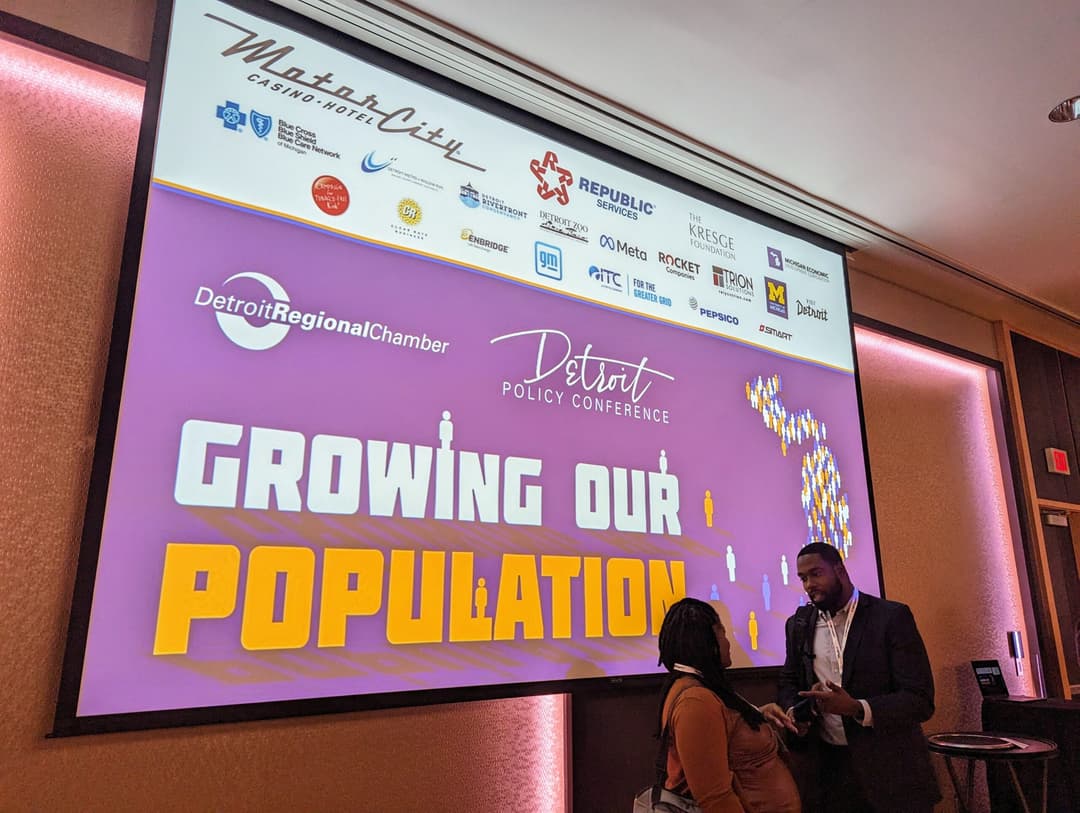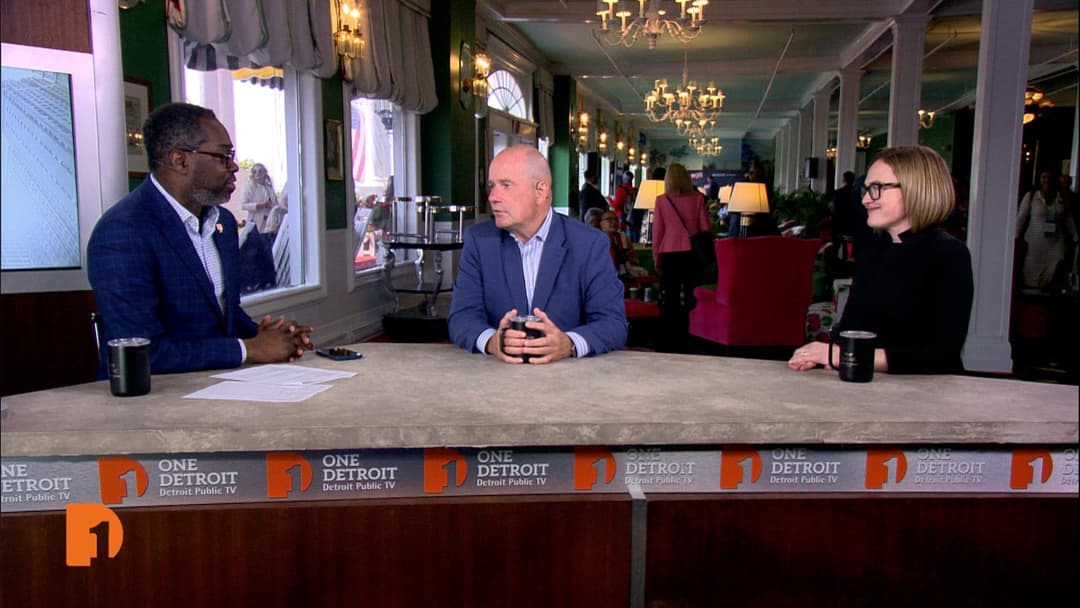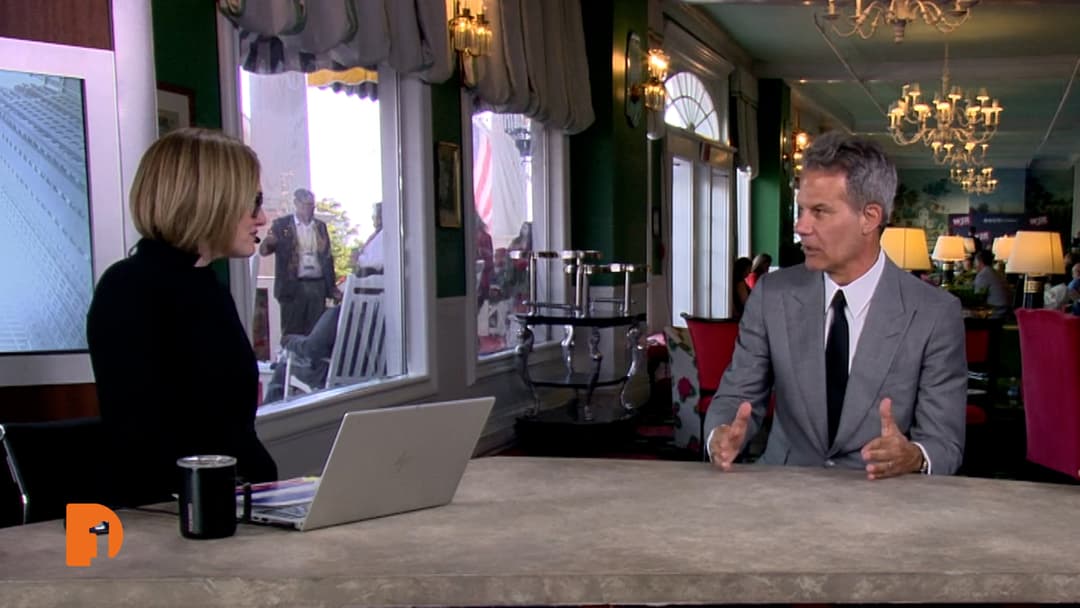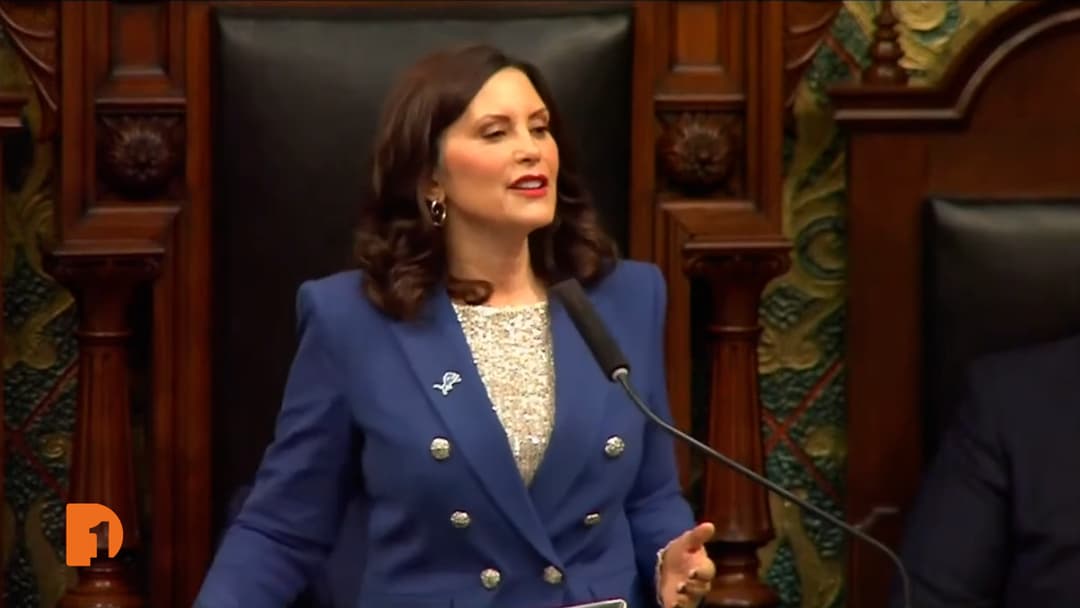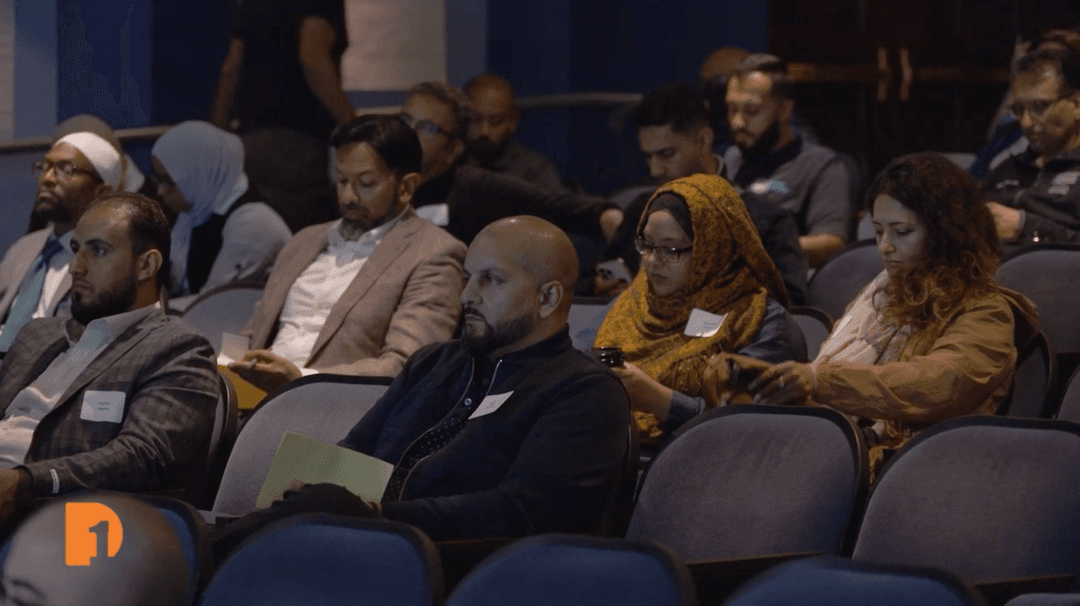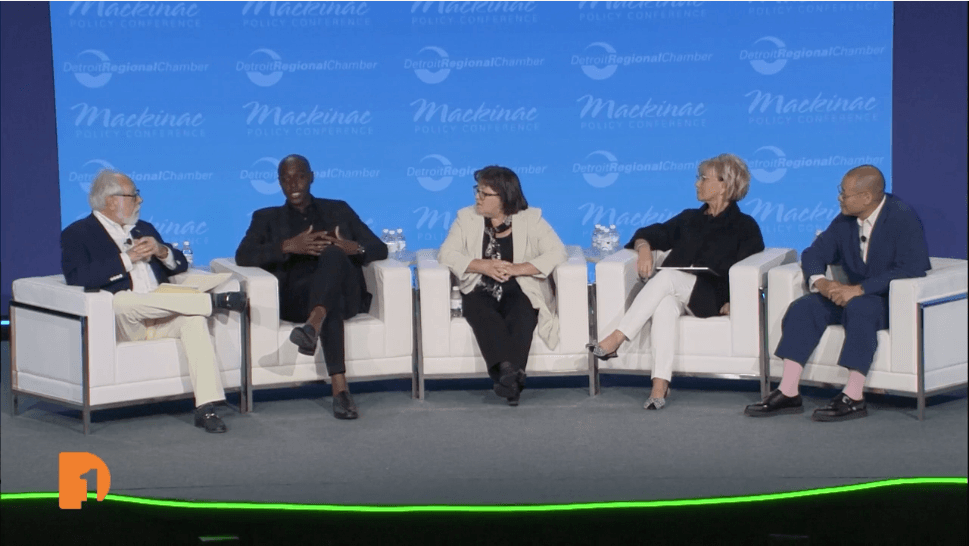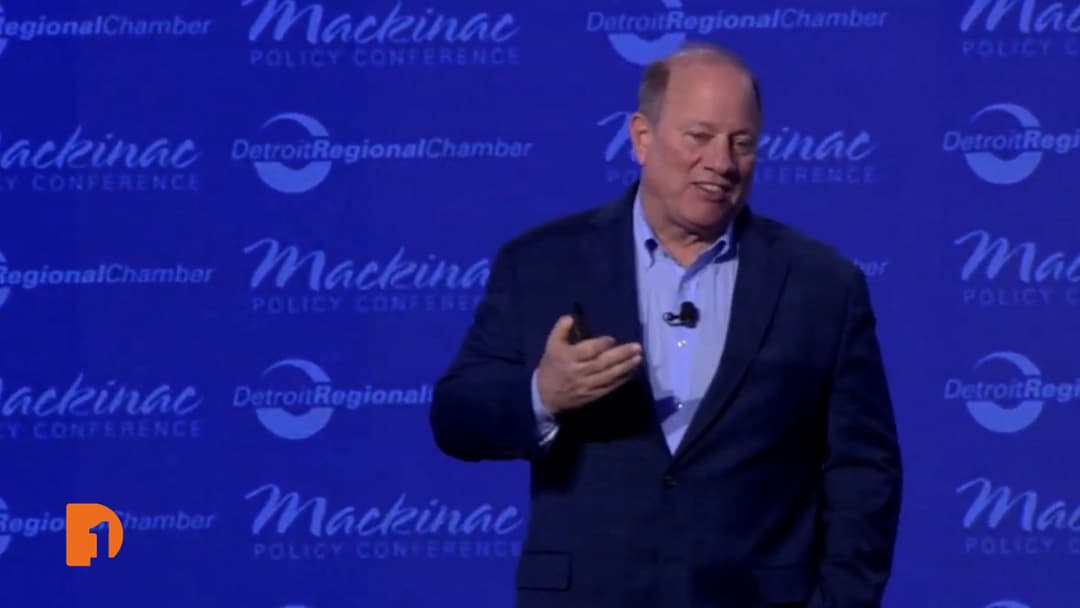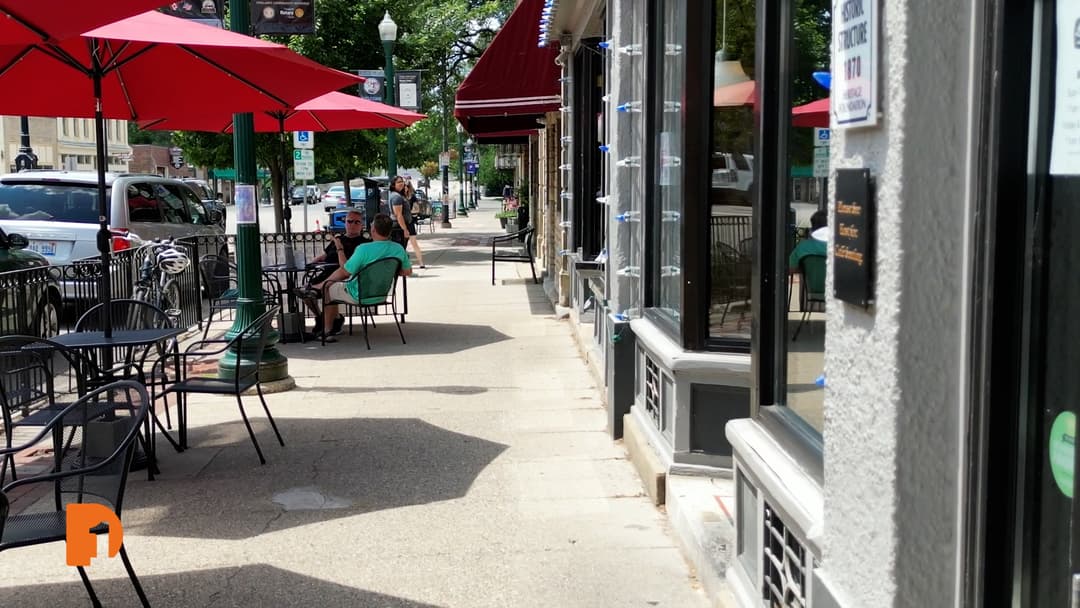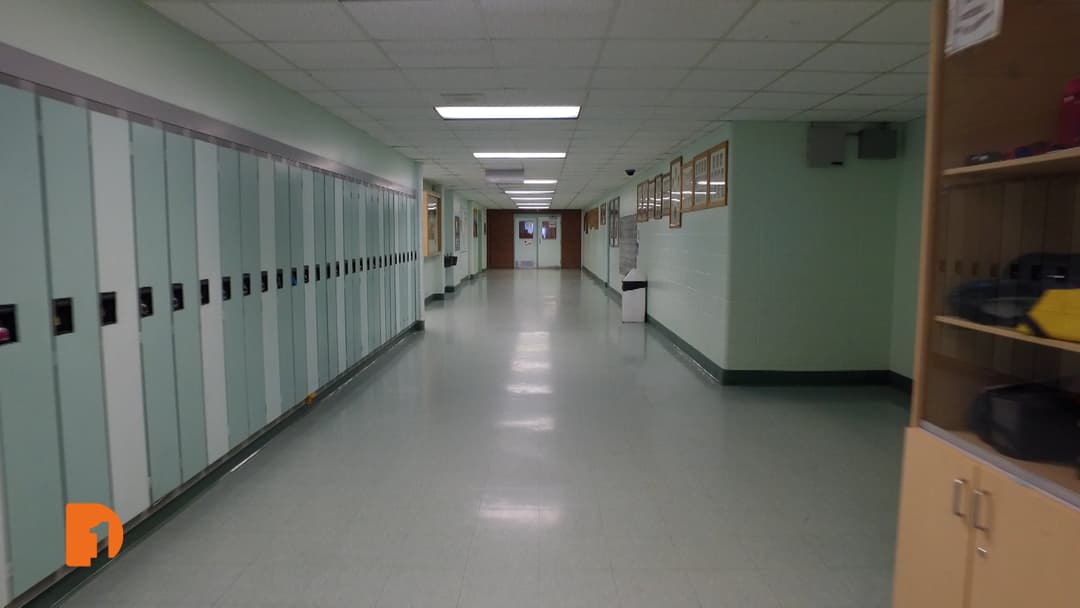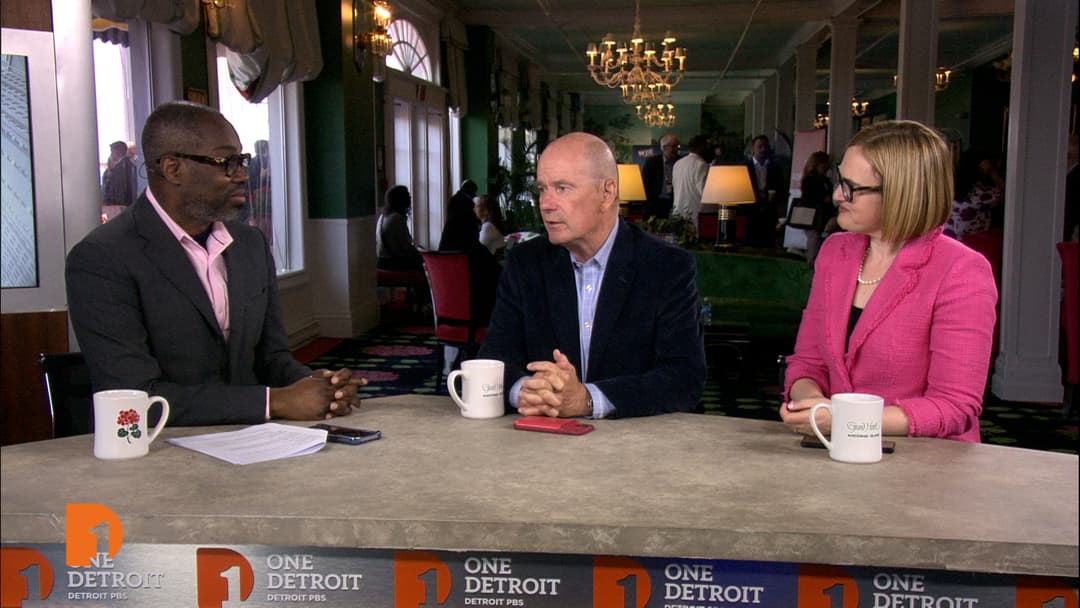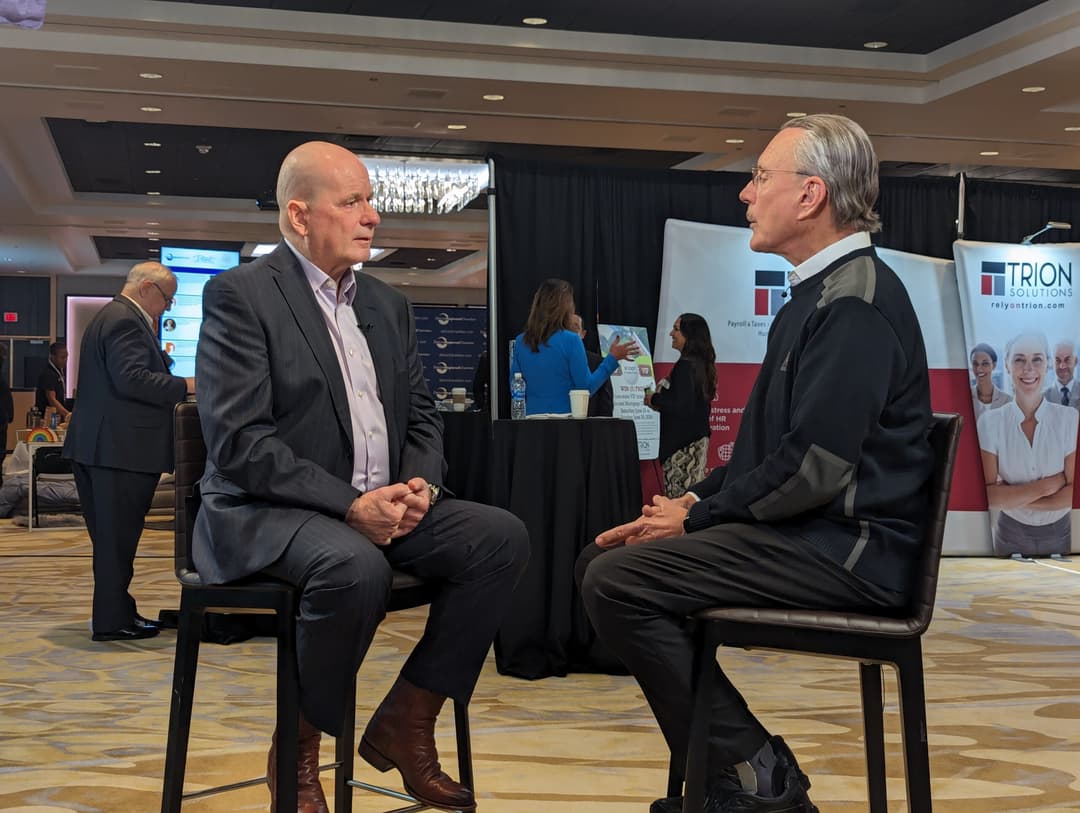Gov. Whitmer’s Growth Council aims to boost population, economy through education and infrastructure
Aug 24, 2023
Michigan Governor Gretchen Whitmer’s “Growing Michigan Together Council,” unveiled during the 2023 Mackinac Policy Conference, is taking a bold bipartisan approach to address the state’s key challenges. Comprised of experts from various fields, the council’s overarching goal is to devise strategies that will bolster Michigan’s population and economy with a focus on Pre-K-12 education, higher education, infrastructure, jobs, talent, and overall societal well-being.
RELATED:
- Gov. Gretchen Whitmer announces new council, chief growth officer to fuel population increase
- Renowned urbanist Richard Florida discusses Michigan’s population declines and how to build a prosperous future
While discussions on mitigating Michigan’s population decline have persisted for decades, State Senator Darrin Camilleri (D-4th District), a recent appointee to the council, believes that the group is breaking new ground through a multifaceted approach to growth.
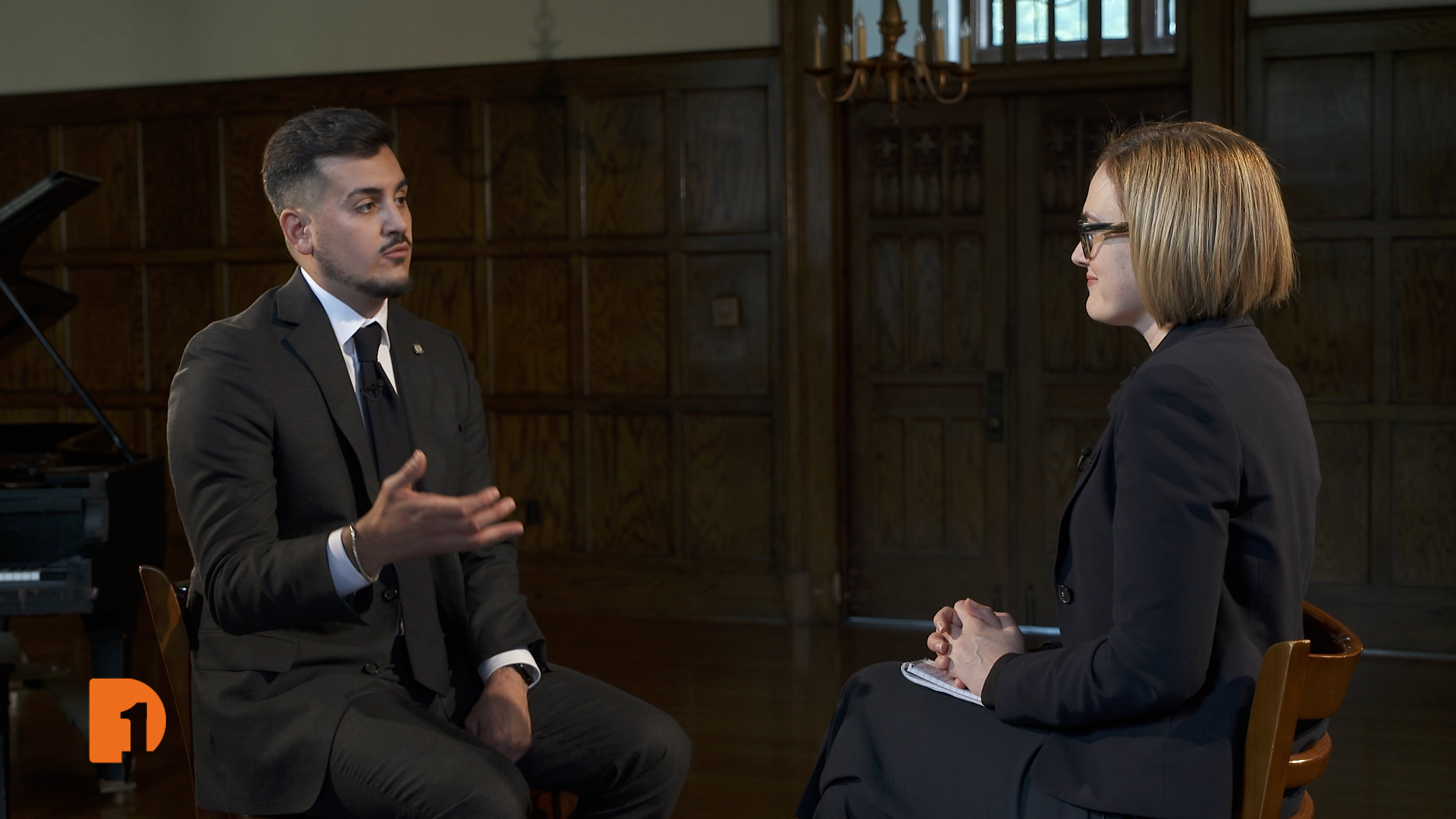
During an insightful conversation with One Detroit population contributor Zoe Clark, Political Director for Michigan Radio, Camilleri shares how the newly established Michigan Department of Lifelong Education, Advancement, and Potential (MiLEAP) will play a pivotal role in the overall growth strategies of the Growing Michigan Together Council.
Camilleri also addresses concerns raised by the Michigan Board of Education regarding the constitutionality of MiLEAP and talks about his hopes that the state will become a top 10 state in terms of education quality and economic growth.
Full Transcript:
Zoe Clark, Political Director, Michigan Radio: So let’s talk all things population. Let’s first talk about the council that you’ve been appointed to. What are you looking forward to? What is actually going to get done here?
Darrin Camilleri. Michigan Senator, 4th District: I’m excited that we’ll have a chance to dive deep into population trends, not only in Michigan but across the country as we look to figuring out solutions to help put us on the map for being one of the best places to live, grow a family, and have a job and work here. We’ve got fantastic features for people to have recreation and love being here and work here. But we need more people to know that that is a story that Michigan has to tell.
Zoe Clark: Where is that disconnect? Because there was also a report that said Michigan is second only behind West Virginia when it comes to population growth.
Sen. Darrin Camilleri: I think as a young person and knowing a lot of my friends who have moved out of state or even out of the area that I grew up in, Downriver, people are looking for places where you have a lot of activity, where you can walk to coffee shops or museums or art shows and a place that you can feel like you’re part of a community. And I think we need to go back to more of those types of communities.
If you look at Michigan and places that are growing, it’s places like Traverse City or Ann Arbor or places like Royal Oak and Oakland County. And those are walkable, livable communities that people are attracted to based on the experience that they have there. And so we need more of that across the state.
Zoe Clark: So those places that you just named also happened to be very wealthy areas. Talk to me a little bit about how, when we’re talking about growing population, that fits in with inclusivity for all so that everyone can make a home in these areas that can be tough to find housing and affordable living.
Sen. Darrin Camilleri: And that’s actually a key piece that was brought up in our first Population Council meeting is that we want to ensure that any of the data that we are looking at and analyzing is really inclusive of every experience of all of our Michiganders. And so we’re talking about communities of color. Some of that data is not always aggregated in a way that is telling the full story. Let’s put it that way. Where we’re talking about Latino communities or black communities or any of our other diverse, beautiful members of Michigan, we want to ensure that every piece of the data is accurate and that we are inclusive for all of those voices.
Zoe Clark: So help me understand. So it’s like this younger generation that we need to get to stay or that we want to have them stay. Meantime, we sort of have a council or folks in government saying, here’s what we need to do, tend to be older. So how will the council, or whoever is making some of these decisions, make sure to listen to the younger generation?
Sen. Darrin Camilleri: This is how I’ve lived my life in politics. I’m one of the younger people always in the room, and I think that there are those who are eager to listen to people like me and others who are of my generation wanting to see what is it that I’m choosing about Michigan. Why do I want to be here? And for me, it’s about making sure that we have a place that is close to home, that I have a beautiful family nearby, that we’ve got wonderful places to live that are affordable, and that we do have these beautiful natural resources across Michigan, whether it’s Lake Erie or the Detroit River.
Zoe Clark: You are chair of the PreK-12 education budget in the Senate. Talk to me a little bit about the conversations that you want to make sure are had at that table.
Sen. Darrin Camilleri: When talking about education, it has to be pre-K through post-secondary. And so we’ve got to talk about how do we get the best resources in front of our kids as early as possible. So we’re talking about literally right from birth. So whether it’s the Dolly Parton Imagination Library and getting more books in the hands of families, which is something that we added in our school budget for more Michigan students to take advantage of. All the way through, what is that post-secondary credential? Whether it’s a trade school or a two-year community college or a four-year university, all of those options have to be on the table for conversation.
Zoe Clark: Growing Michigan’s population has been on the top of politicians, lawmakers, academics, economists, minds for decades here in Michigan. How will this council, do you think, be different this time than the previous conversations, iterations, idea-making?
Sen. Darrin Camilleri: I think for a lot of the conversation previously, it’s always been about how do we hearken back to the past. And because we have so many people who came to Michigan for a specific purpose. My family is one of them. My dad’s an immigrant from Malta. Him and his family came to the U.S. in the 1960s with the hope of the American dream and a good manufacturing job. On my mom’s side, Mexican Americans who came from Texas all the way to Detroit again with the hope of manufacturing. But that was 60, 70 years ago for my mom’s side and 50 years ago from my dad’s side. That type of Michigan doesn’t exist in the same way.
But how can we become a place that is still a beacon of hope for the future? It’s about climate. It’s about our environment. We are going to be the place that, because of the lack of action at the national and worldwide level for climate change, Michigan is the place where you can seek refuge in the future. You know, we do have our moments of really high heat, but we’re not sitting in 120 degrees like in Arizona. There’s going to be a point pretty soon where people are starting to realize that we want to live in a place that is bearable and beautiful all at the same time.
Zoe Clark: So affordable living, transportation, which is always top of mind here in Michigan, and education. What will success look like? Are there going to be metrics? How will you know that this is working other than maybe a population of 11 million? What does that look like?
Sen. Darrin Camilleri: So I do think we need to hit a specific target, whether that is a specific number that we’re hoping to be at by 2050 or a specific growth number. One of those two things is really critical because we do need to have a North Star. But the other piece is what are the other metrics along the way? And so if we’re going to hit a certain population, whether it’s 11 million, 12 million by a certain number, what are the steps along the way that we need to be taking together?
Whether you are a Democrat or Republican in this legislature, we need to be united in that purpose. And that’s something I hope we can come out of this council with, is that this is the vision for Michigan. It’s not a vision for the governor or for the legislature or for this one body of people. It’s literally, how can we put all of our partisan politics aside and say, for Michigan to thrive, we must do this together and stick on that path for the next ten or 15 years?
Zoe Clark: Let’s talk a little bit about education. The governor just recently announced an entire new department will go into effect in December. Talk to me a little bit about MI-Leap.
Sen. Darrin Camilleri: I think for this new department that the governor is creating, it’s again, back to that principle of we need to be focused on a goal as a state and we need to all be working towards that direction. And so with her new initiative, with MI-Leap, I think it’s going to be very important that we focus on those early learners as well as those who are looking to go right into the economy and to get a job. And we do know that those who have been working in the Department of Education, I’ve heard it over and over again during this budget process, they need more staff, they need more support. So if we can figure out ways to balance that workload, I think this new department is really going to help.
Zoe Clark: So you just mentioned the Department of Education. So these are going to be two separate departments. And there’s been some consternation from some folks who are part of the Department of Education, including the state superintendent, Michael Rice. The Education board members actually asking for an opinion from the state attorney general, Dana Nessel, about the constitutionality of this new department. Is it not great that it’s already- with its announcement that there’s already a little controversy surrounding whether it’s something that even Democrats are going to back?
Sen. Darrin Camilleri: I think there’s always going to be resistance to change, no matter whether it’s coming from a Democratic administration or a Republican administration. But this one component around education, no matter the party of the governor, there has not been an ability for the governor to really lead in a direction unless they do some systemic departmental changes. And that’s one way that I know that Governor Whitmer is trying to lead in this space.
She has the constitutional authority to create her own departments and to reorganize departments as well. I’m backing it. I think a lot of legislators are backing it, too, because we do see the benefit of working with a department that is focused on some of these early and post opportunities for education.
Zoe Clark: Let’s think about 2033. Write me a headline if Michigan is a successful state when it comes to population growth, and particularly your passion, which is education.
Sen. Darrin Camilleri: The headline that I’d like to see is that Michigan is a top ten state for growth, and we are in a top ten state for education across the country. When we look at some of the things that we’re investing in right now, we are trying to plant the seeds for future opportunities, not only for our students but for our educators as well. If we can be the place for an education workforce, it’s going to set us up for so many opportunities for success.
Zoe Clark: Can we do it?
Sen. Darrin Camilleri: I think we can. We’ve got some really important investments in the education workforce that we just passed in this budget. We’ve got record per pupil amounts going out to every student across Michigan, and we’re also investing in equity. We’re spending $200 million in additional resources for our at-risk students. And that’s also being added in with a new opportunity index that if you you’re in a high concentration poverty district, you’re going to get more money per pupil than those that don’t have those exact needs.
That, I think is going to level the playing field, balance out some of these inequities in our system and actually help us address these challenges. Hopefully for that 2033 headline to say, Come to Michigan. Be the place that you want to raise your family. Be the place that you want to learn and grow and work. And that is something that I think we can all be proud of.
Stay Connected:
Subscribe to One Detroit’s YouTube Channel & Don’t miss One Detroit Mondays and Thursdays at 7:30 p.m. on Detroit PBS, WTVS-Channel 56.
Catch the daily conversations on our website, Facebook, Twitter @DPTVOneDetroit, and Instagram @One.Detroit
View Past Episodes >
Watch One Detroit every Monday and Thursday at 7:30 p.m. ET on Detroit Public TV on Detroit Public TV, WTVS-Channel 56.
Stay Connected
Subscribe to One Detroit’s YouTube Channel and don’t miss One Detroit on Thursdays at 7:30 p.m. and Sundays at 9 a.m. on Detroit PBS, WTVS-Channel 56.
Catch the daily conversations on our website, Facebook, Twitter @OneDetroit_PBS, and Instagram @One.Detroit
Related Posts
Leave a Reply
Your email address will not be published. Required fields are marked*


